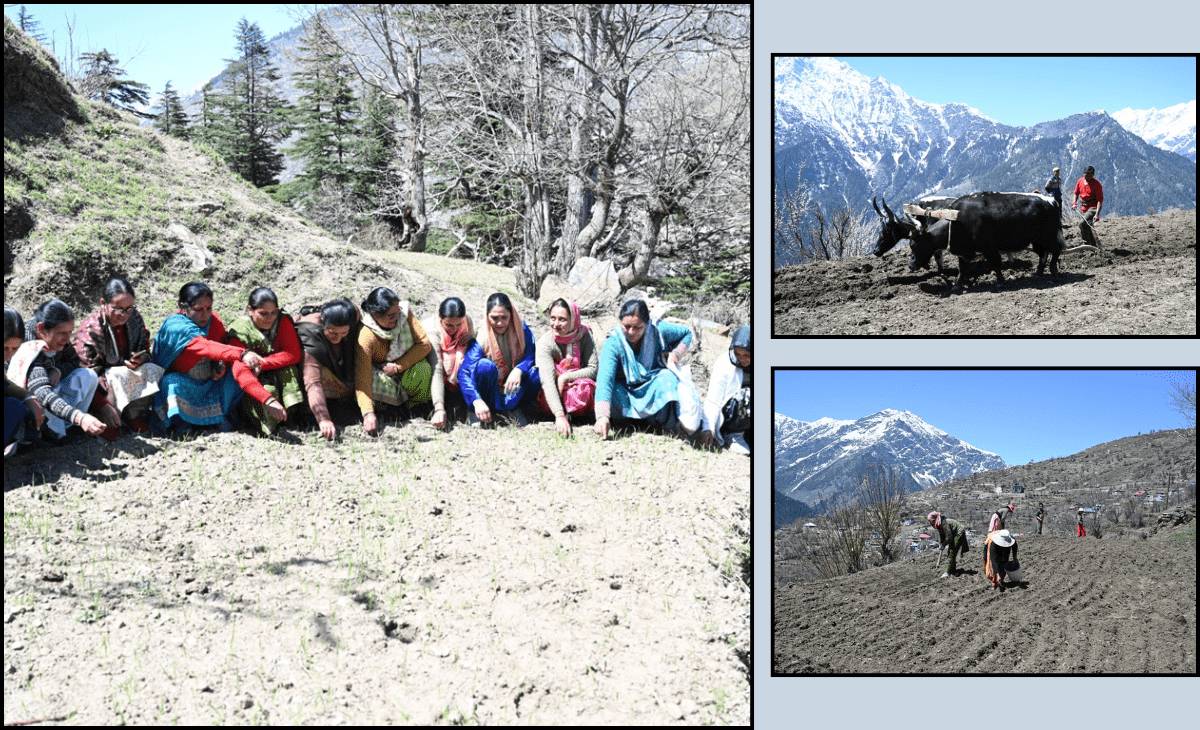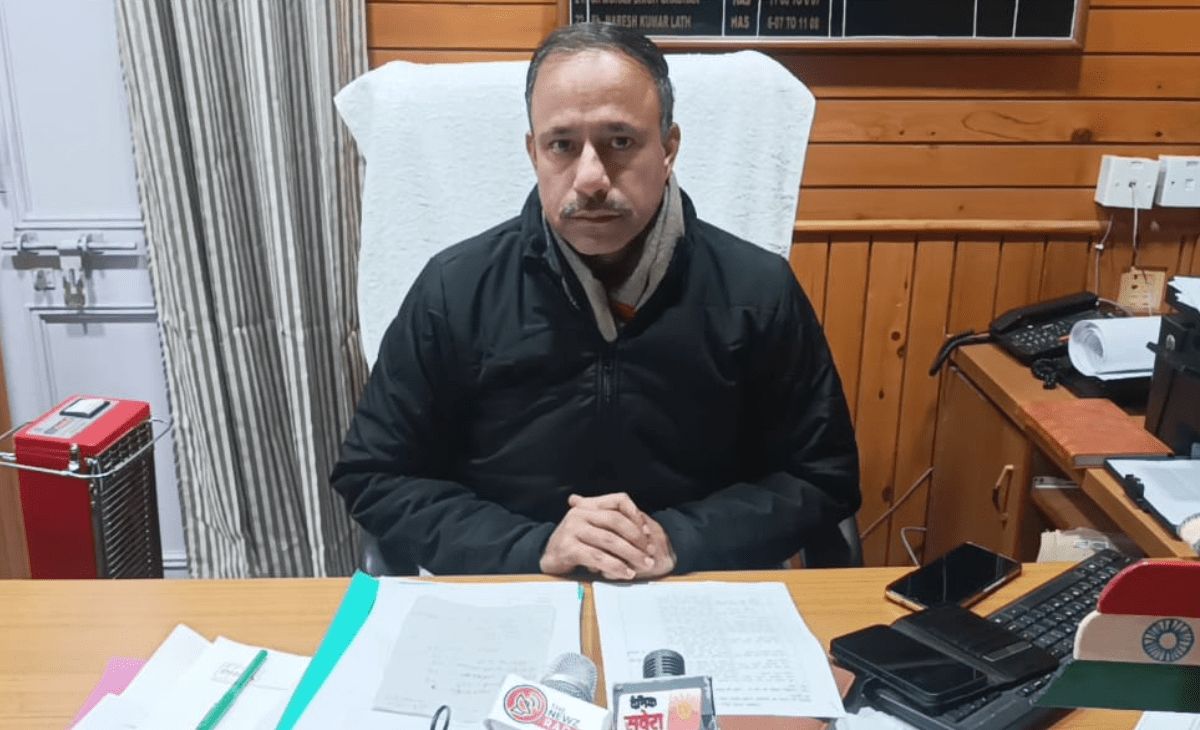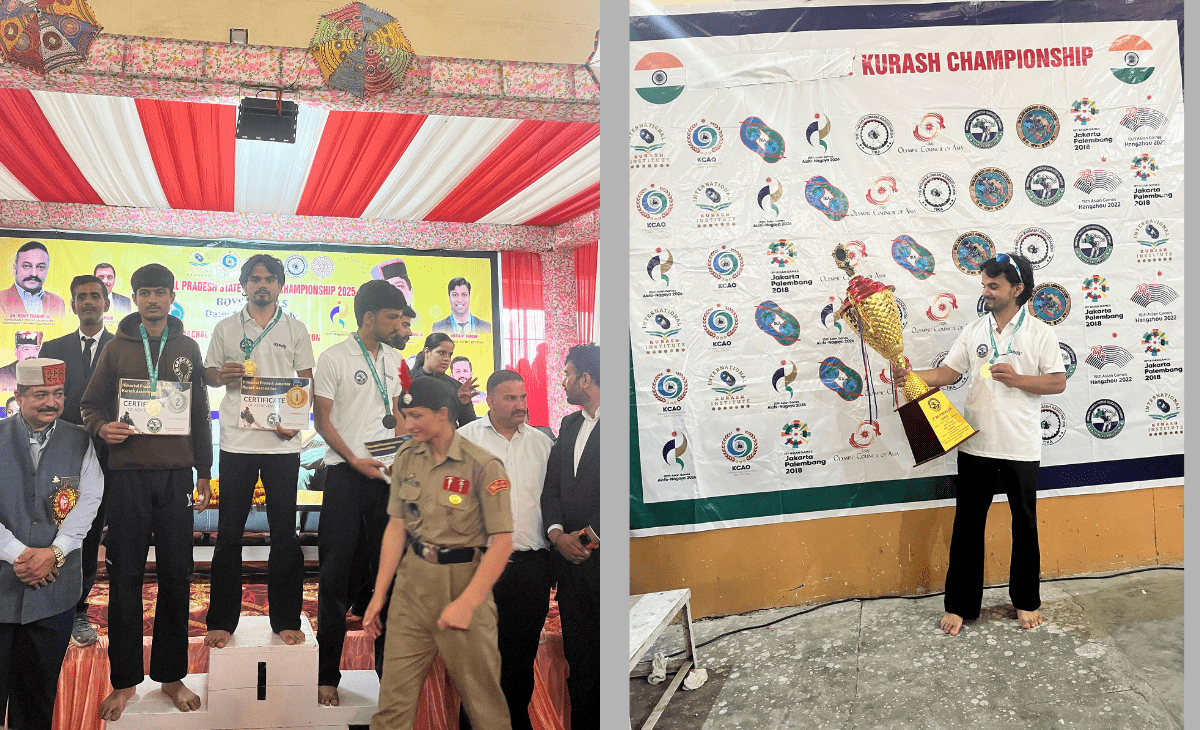TNR News Network
Pangi:
In a landmark step towards sustainable agriculture and tribal empowerment, the Himachal Pradesh government has officially notified Pangi sub-division in Chamba district as the state’s first “Natural Farming Sub-Division”.
The move, fulfilling Chief Minister Sukhvinder Singh Sukhu’s Himachal Day announcement, has been met with widespread appreciation from the people of the remote valley.
The decision is being hailed by residents as a transformative policy that aligns with the traditional farming values of the region, while addressing the urgent need for sustainable land use, soil health restoration and ecological balance.
“This was long overdue,” said Raj Kumar, a farmer from Dhanvas village. “Chemical farming has harmed our lands. The government’s support for natural methods is a step in the right direction.” He said that many landowners who once leased out their farms for chemical cultivation are now regretting it due to soil degradation.
Currently, 2,244 farmer families in Pangi are already engaged in chemical-free cultivation. With the new notification, the government plans to transition all 2,920 hectares of cultivated land—spanning agriculture, horticulture and allied areas—to 100 percent natural farming.
Grassroots impact and women’s voices
Women farmers from Punto village, Sheela Devi and Sunita Kumari, expressed hope that the official recognition will enhance their livelihoods, even with small landholdings. “If we farm naturally, we’ll not only protect our land but leave a healthier legacy for our children,” they said.
Natural farming in the region has already shown encouraging results — lower input costs, improved crop quality and enhanced soil fertility — and the government now plans a phased and decentralised rollout of support systems.
The Agriculture Department has developed a comprehensive roadmap including village-level planning, training programs and field demonstrations. To facilitate the transition, Bio-Input Resource Centres (BRCs) will be set up at the panchayat level. These centres will supply natural formulations like Beejamrit, Jeevamrit, Dashparni Ark and Agniastra, and also serve as community training and knowledge-sharing hubs, especially for farmers without access to livestock, which are essential for producing these inputs.
In later phases, the initiative will focus on infrastructure creation, including poly-houses, cold storage and transport facilities, as well as the formation of self-help groups (SHGs), farmer producer organisations (FPOs) and farmer producer companies (FPCs).
Large area certification and market access
To help farmers access premium organic markets, the government will implement Large Area Certification (LAC) under the Participatory Guarantee System (PGS-India). This community-led certification will allow entire villages to be recognized as organically managed zones, increasing visibility and market value for their produce.
Deepak Kumar, pradhan of Suraal panchayat, welcomed the move, saying, “This is a turning point for our region’s economy. With proper support, our produce can command better prices and help the youth see farming as a viable future.”
A state government spokesperson said that the present administration under Chief Minister Sukhu is committed to the development of tribal and remote regions through innovative and inclusive policies. He noted that initiatives like ‘Sarkar Gaon Ke Dwar’ and celebrating Himachal Day in Kaza reflect the government’s effort to understand and address grassroots challenges.











